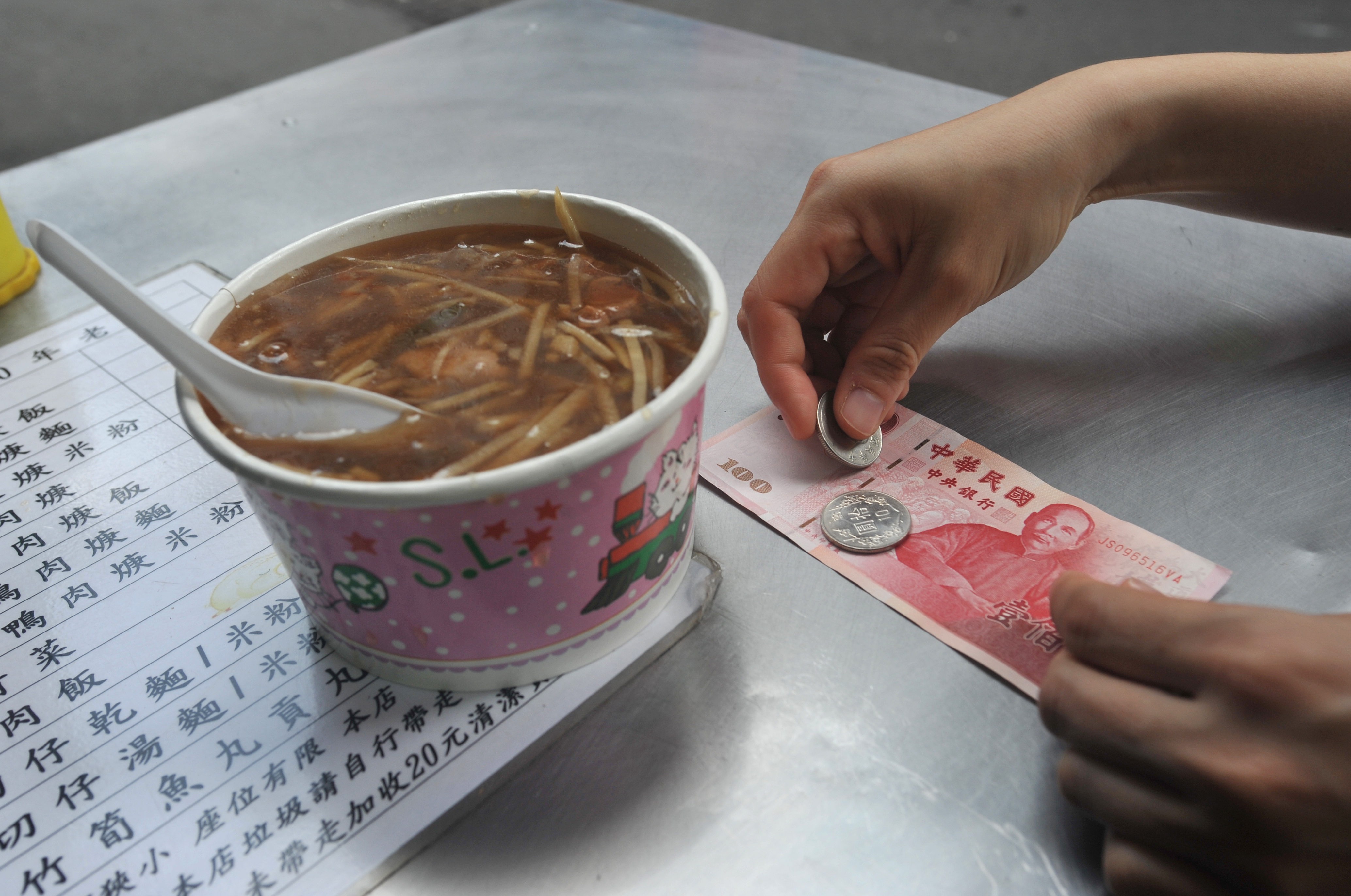How much to tip? A guide for globetrotters
Here's how to avoid offending or overpaying, no matter where you find yourself


A free daily email with the biggest news stories of the day – and the best features from TheWeek.com
You are now subscribed
Your newsletter sign-up was successful
You've just gotten off a 10-hour flight to a country you've never visited before. It's late and all you want to do is collapse into your hotel bed — just as soon as you grab a bite at the little restaurant across the street. You pull out your wallet to pay, only to realize that you have no idea how much of a tip to leave. Or if you should even leave a tip. And did you just offend the cabbie who dropped you at the hotel? What about the porter who just carried your bag up to your room?
Traveling can be an etiquette minefield, and many an experienced globe-trotter has found him or herself confounded by when to offer a few extra dollars (or euros, or yen, or rupees…). While it's worth brushing up on the more detailed, country-specific suggestions in your guidebook or downloading an app like Global Tipping, here's a brief outline that should keep you from offending or overpaying anyone, no matter where you find yourself.
North America
The Week
Escape your echo chamber. Get the facts behind the news, plus analysis from multiple perspectives.

Sign up for The Week's Free Newsletters
From our morning news briefing to a weekly Good News Newsletter, get the best of The Week delivered directly to your inbox.
From our morning news briefing to a weekly Good News Newsletter, get the best of The Week delivered directly to your inbox.
Sure, you know the basics: An 18-20 percent tip in restaurants (yes, 15 percent is old-school); a dollar per beer and two dollars per cocktail at bars (or 15 percent minimum on the bill); and 15 percent on taxis. But have you been tipping the bellman, housekeeping, room service, and the concierge at the hotel? Anyone who handles your bags, gets your car, drives you around, hails you a taxi, or makes you a dinner reservation should get a few dollars. Tour guides, too, should be tipped. And before you protest at how quickly you're bleeding cash, keep in mind that these people are often paid minimum wage, at best, and live off of their tips. Think of it as the price of doing business.
Europe
While the entire continent of Europe can't be lumped into a single set of rules, keep in mind that in many European countries being a waiter isn't seen as menial service, but rather a professional career. So while a service fee is typically included in restaurant bills, it's normal to round up by several euros for good service. The exception: In the U.K., you should be adding a 10 percent tip to a meal. At bars, Europeans don't tip — in the U.K., tipping a bartender actually means you're interested in them. (Yes, sexually.)
At hotels, tip porters a euro or so per bag, and leave several euros per day for housekeeping. Taxi fares can be rounded up, but tour guides and drivers should be tipped anywhere from 10 to 30 euros per person per day. As in most of the world, tips should be given in cash.
A free daily email with the biggest news stories of the day – and the best features from TheWeek.com
The big exception to all these rules is Scandinavia, including Iceland, where tipping is not customary. Any service charge is usually included in rates.
While famously hospitable, Middle Eastern countries are also well-known for baksheesh, the small tip requested by seemingly everyone you encounter, for every possible service. While Americans often see this as a bribe, there's nothing shady about it; it's just a part of the culture. Just as we expect everyone to pay an additional nearly 20 percent on sit-down meals, Middle Eastern cultures expect everyone to give a few dirhams, dinars, or dollars to housekeeping, porters, doormen, drivers, handymen, and the woman who watches your shoes while you're visiting a mosque. Oftentimes, it's worth tipping a maître d' (at high-end restaurants) or hotel concierge upon arrival to guarantee you'll be taken care of. Guides should get larger tips (as much as $30 per person per day, depending upon the country — remember that, in Egypt, guides are often trained Egyptologists and archaeologists). In many Middle Eastern countries, a service fee is included in restaurant bills; if it's not, leave anywhere from 10 to 20 percent, always in cash.
East Asia
Traditionally, there's never been much of a tipping culture in China, Japan, and Korea, though some luxury hotels and restaurants that primarily cater to Westerners have added services charges to bills in recent years, and some porters and bellboys who interact with lots of Americans might appreciate a small tip. Don't ever feel that it's expected, though — and, indeed, give any tip discreetly.
The exceptions to the rule are tour and excursion guides, and private drivers, who should be tipped around $20 per person per day. Also, any tips you give in Japan should be offered in an envelope.
South Asia
While India's tipping culture is similar to that of the Middle East — that is, tip often, in cash, and generally in small amounts — most Southeast Asian cultures are more reserved when it comes to service charges. In most countries, you should tip 10 percent on a restaurant meal, but check to make sure that it's not already included in the bill; feel free to round up for excellent service. At hotels, the only norm is to tip the bellman a dollar or so per bag. In some countries, a service charge is included in the hotel fee, and, as ever, if the concierge is a great help, tip $10 to $20 dollars. Taxi fares can be rounded up.
Oceania
As in East Asia, tipping is generally frowned upon in many cultures of the South Pacific, and, indeed, you may insult someone by trying to offer them a tip. In recent years, some luxury hotels have started leaving a tipping box at reception, should you feel the need to leave a few dollars, but otherwise, tip at your own discretion — in other words, if someone goes above and beyond for you, or a five-star restaurant meal is exceptional, feel free to offer something extra.
The big exceptions: Australia and New Zealand, where tipping has become more acceptable. There, you should leave 10-15 percent on restaurant bills, and more or less follow American tipping rules for hotel staff, guides, and cab drivers.
South America
South America is a large continent, and norms vary, but, in general, you should tip approximately 10 percent on restaurant meals — but, of course, check to make sure it's not already included. At a nice hotel, give the equivalent of a dollar or so per bag to the porter, and leave one or two dollars per day for housekeeping, preferably in a marked envelope. The concierge doesn't normally expect a tip, except in Chile, where tipping a concierge up front can make a difference if you're going to need extra help. Round up taxi fares, unless the fare is prearranged, and be sure to tip generously (per the local economy's standards) for tour guides and private drivers. Note that Peru has less of a traditional tipping culture, and so, even in tourist areas tips are less expected.
Kate Thorman is a freelance writer and editor based in Brooklyn. Her work has appeared in such publications as AFAR, Bon Appétit, and Fodor's. Her other projects include screenwriting and Part Time Vegan.